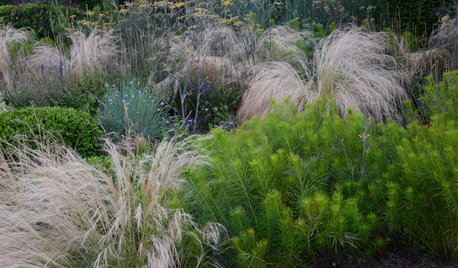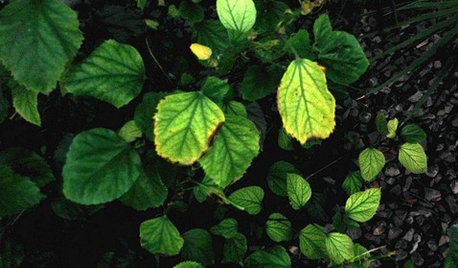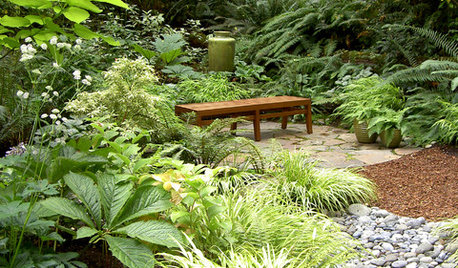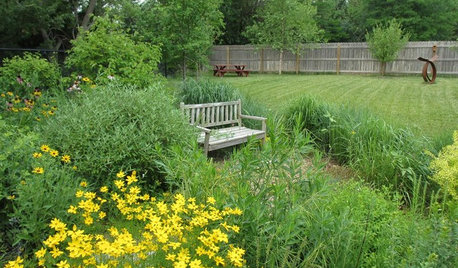Humus vs. Compost?
the_virginian
12 years ago
Related Stories

GARDENING GUIDESHow to Stop Worrying and Start Loving Clay Soil
Clay has many more benefits than you might imagine
Full Story
GARDENING GUIDESGardening Solutions for Heavy Clay Soils
What’s a gardener to do with soil that’s easily compacted and has poor drainage? Find out here
Full Story
GARDENING GUIDES4 Ways to Break the Rules in Your Garden
For a more creative landscape design, take a different approach to planting
Full Story
GARDENING GUIDESWhat's Wrong With My Plant? Leaves Often Hold the Clues
Learn how to identify common plant ailments by reading their leaves
Full Story
GARDENING GUIDESGreat Garden Combo: 6 Beautiful Plants for a Shady, Wet Site
Transform a shade garden with moisture-loving golden grasses, textural leaves and a sprinkling of flowers
Full Story
GARDENING GUIDESHow to Design a Garden That Lasts
Climates are changing. Wildlife is evolving. Can your garden keep up?
Full Story
MONTHLY HOME CHECKLISTSOctober Checklist for a Smooth-Running Home
You're due for some winterizing, like clearing rain gutters and stowing swimsuits — but leave time for a fun project
Full StoryMore Discussions







toxcrusadr
Lloyd
Related Professionals
Wrentham Landscape Architects & Landscape Designers · Beavercreek Landscape Architects & Landscape Designers · Hershey Landscape Architects & Landscape Designers · Kyle Landscape Architects & Landscape Designers · Brookside Landscape Contractors · Cincinnati Landscape Contractors · Franklin Landscape Contractors · Medford Landscape Contractors · Pomona Landscape Contractors · Saint George Landscape Contractors · Selden Landscape Contractors · Dayton Decks, Patios & Outdoor Enclosures · Frederick Decks, Patios & Outdoor Enclosures · San Antonio Decks, Patios & Outdoor Enclosures · West Chester Decks, Patios & Outdoor EnclosuresLaurel Zito
toxcrusadr
feijoas
bluegoat_gw
jolj
Kimmsr
tn_gardening
Laurel Zito
bluegoat_gw
the_virginianOriginal Author
Laurel Zito
Kimmsr
organic_popeye